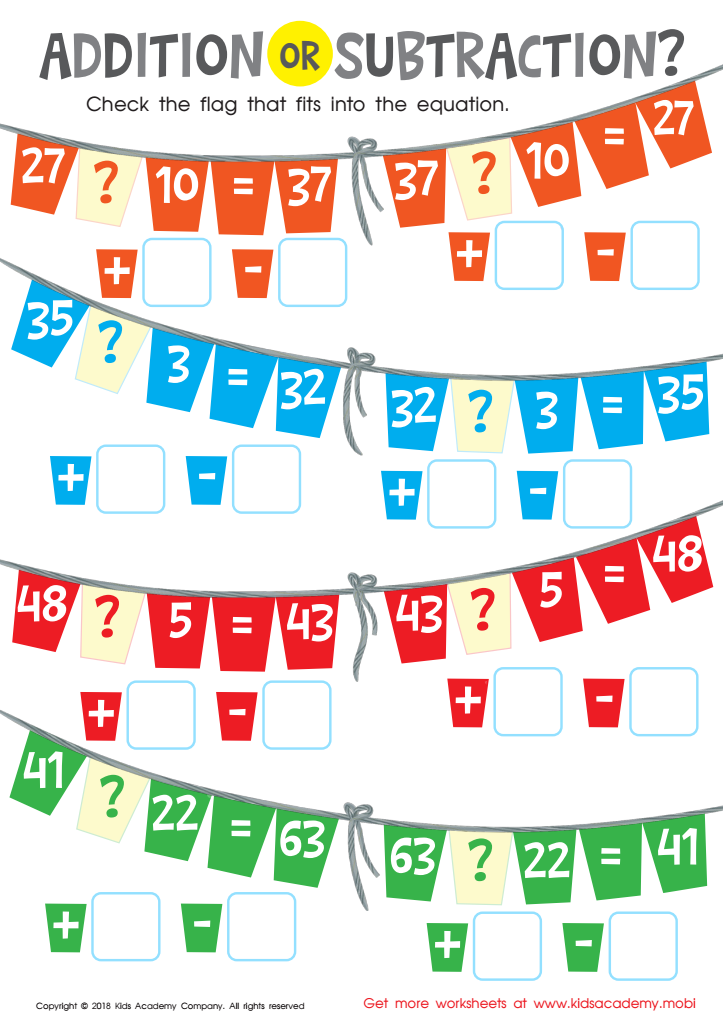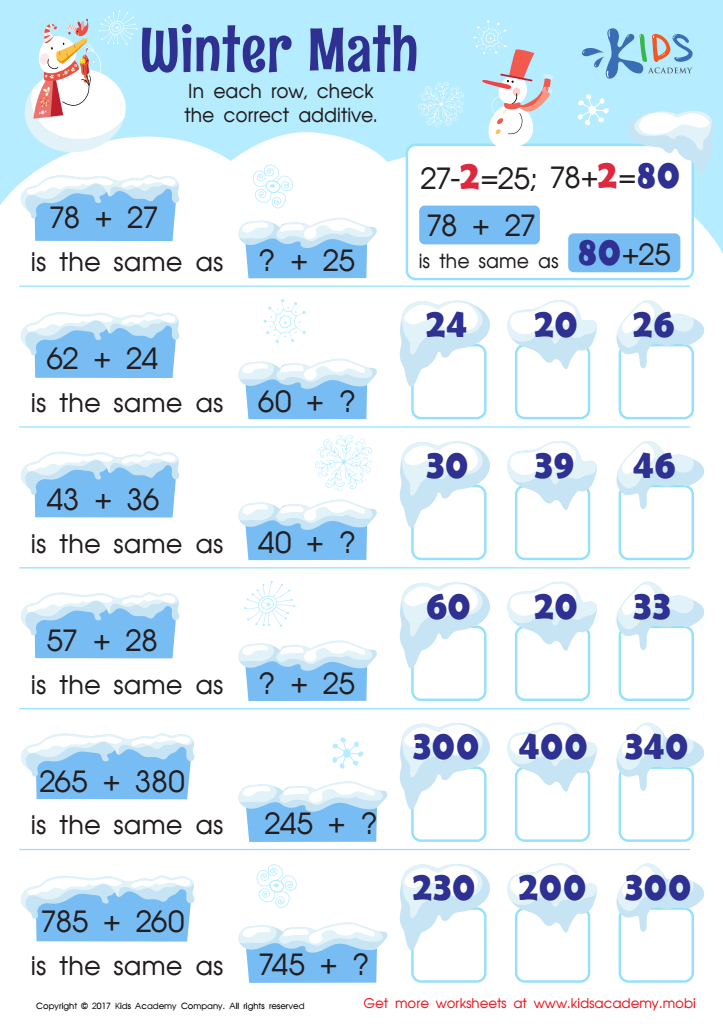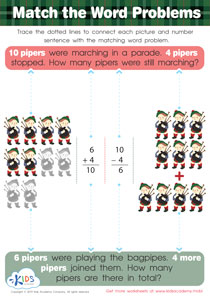Mathematical reasoning Normal Addition Worksheets for Ages 5-9
4 filtered results
-
From - To
Explore our "Mathematical Reasoning Normal Addition Worksheets" designed for children aged 5 to 9. These engaging resources aim to enhance young learners' problem-solving skills and promote a deeper understanding of addition concepts. Each worksheet incorporates fun illustrations and relatable scenarios, encouraging kids to apply mathematical reasoning in practical situations. Ideal for classroom use or at-home practice, our worksheets cater to various learning styles, ensuring all children can thrive in developing their addition skills. Foster confidence and proficiency in mathematics with our carefully crafted worksheets, tailored to make learning enjoyable and effective for every young mind. Tailored learning has never been this much fun!


Tricky Problems Worksheet: Part 1


7 Continents and 7 Seas Worksheet


Addition or Subtraction? Worksheet


Free Addition Worksheet
Parents and teachers should prioritize mathematical reasoning in normal addition for children aged 5-9 because it lays the foundation for future academic success and everyday problem-solving. During these formative years, children develop critical thinking skills essential for understanding mathematical concepts beyond simple computation. Mathematical reasoning encourages children to explain their thought processes, recognize patterns, and apply strategies in various contexts, fostering a deeper comprehension of addition.
Engaging in reasoning fosters resilience, as students learn to approach challenges methodically and understand that mistakes are part of the learning process. Additionally, reasoning skills promote a positive attitude towards mathematics, reducing anxiety and boosting confidence. By integrating reasoning into normal addition, parents and teachers not only support academic achievement but also contribute to children's overall cognitive development.
Moreover, strong mathematical reasoning in early education equips children with the ability to handle real-world situations, such as budgeting, measurement, and time management, which are integral skills for lifelong success. Ultimately, encouraging mathematical reasoning in normal addition cultivates a generation of problem-solvers who are prepared to navigate an increasingly complex world. By investing in these skills early on, parents and teachers empower children to become thoughtful, adaptable, and confident learners.
 Assign to My Students
Assign to My Students



















